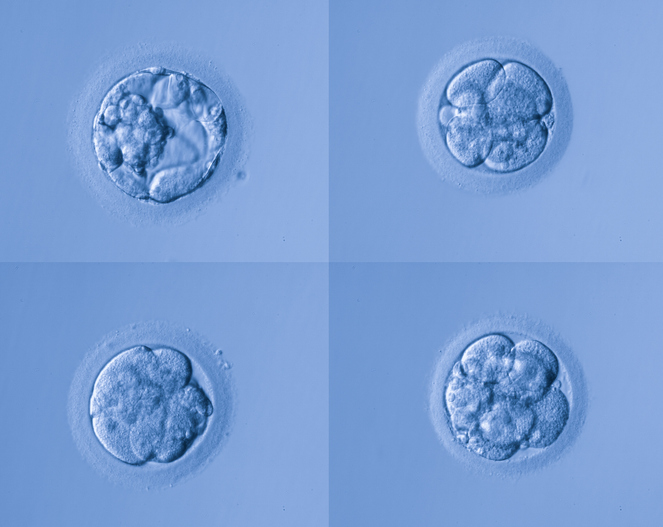.png)
.png)
As the demand for donated eggs continues to rise, more and more women are considering becoming egg donors to help others start a family. Some egg donation agencies downplay the magnitude of the impact you are making as an egg donor. Bringing a new human into this world is a HUGE deal!
We think you should consider the opportunity fully, and really understand what you’re getting into, before making a decision. Here are 8 things to consider before donating your eggs.
1. Do I understand the emotional impact?
The emotional effects of egg donation can vary from person to person and can depend on your expectations and understanding of the experience. Many donors find the experience rewarding and fulfilling, knowing that they have helped someone else start or expand their family. However, some donors may experience more complicated feelings about it. This is why our donors undergo psychological screening – to ensure they are mentally prepared.
It is important to have a strong support system in place during the egg freezing and donation process. This can include friends, family, and healthcare providers who can provide emotional support and guidance. If you freeze your eggs through Cofertility, you’ll be connected with a cohort of others freezing their eggs at the same time. We offer an online community, and our entire team of experts will be behind you the entire time.
2. Am I okay with the physical risks?
Egg freezing is considered a safe procedure. In a single egg freezing cycle, the risk of a serious adverse event is under 2.5%. Severe OHSS accounts for the majority of complications, occuring in 0.1-2% of cycles. The risk of other acute complications, including pelvic infection, intraperitoneal hemorrhage, or ovarian torsion, is small (<0.5%).
That being said, many women do experience minor side effects – like bloating, constipation, nausea – from the medications and egg retrieval.
3. How do I feel about compensation?
A 2021 Harvard study found that 62% of donor-conceived adults felt the exchange of money for donor gametes was wrong, and 41% were troubled by the fact that money was exchanged around their conception.
As one person conceived with a donated egg and donated sperm put it in a survey, “Don’t donate for the money. Understand that you are having children, playing a part in creating people with their own complicated emotions and thoughts.”
At Cofertility, our model is different. Instead of cash compensation, our donors keep half the eggs retrieved (for free). That’s right, if you qualify for the program and decide to give half of your retrieved eggs, every expense associated with the egg freezing procedure — medications, supplements, travel if necessary, insurance, and 10 years of storage — are completely free of charge. We don’t even need a payment or credit card up front, as the family you match with covers all the expenses.
4. Will I get a say in who my eggs go to?
If you work with Cofertility, the answer is yes. We believe donors should have a say in where their eggs go. This is why you get to opt-in to any match. You’ll get to learn a little about the family, even meet them virtually, and decide if you want to move forward. You also get to specify your communication preferences up front, giving you real options in the process.
5. Do I have the time to donate?
The process of egg donation is not a quick one. It involves medical screening, legal contracting, psychological screening, genetic testing, multiple doctor visits, monitoring, and hormone tests which usually happens over a period of two to four months from the time you match with intended parents. Additionally, the actual egg retrieval procedure requires a day or two of recovery time. It’s important to consider whether you are able to commit the time required for egg donation before making a decision.
6. What will my relationship be like with the intended parents? What about with any children born from my eggs?
If you donate through Cofertility, you get to determine the type of relationship you would like with the family. If the eggs you donate lead to a child (and we hope they do!), your relationship with the parents and/or children can take on two forms:
- Disclosed: You exchange contact information and can communicate directly.
- Undisclosed: You do not exchange contact information and only communicate via Cofertility.
The scope and degree of communication (both during and post-match) is what both parties make of it and can be outlined in your legal agreement. Communication can range from sharing an annual holiday card to direct, regular communication between you and the donor-conceived child. We share more about what these relationships look like in practice in our article on disclosure status.
Regardless of the relationship that you have with the family post-birth, we can facilitate a phone or video meeting in which you speak to the intended parents. This can be done with or without sharing names. With an undisclosed donation, you and the family can also choose to allow the donor-conceived child to receive your contact information when they turn a certain age (usually 18). This is called Open ID, an increasingly popular option.
Either way, it’s important to remember that many donor-conceived children grow up curious about their genetics and may want to reach out down the line. We want to ensure that you are aware of and open to that possibility before joining the Split program.
7. How will this impact my relationships?
Donating your eggs may have an impact on your relationships with family and partner, if and when you decide to tell them. It’s important to consider how they will react and whether you are comfortable sharing your decision with them. It’s also important to understand the potential impact on your future relationships and any children you may have in the future.
Read more in Should I Tell People I'm Donating My Eggs?
8. What is the potential to help others?
Donating your eggs can be a fulfilling experience that allows you to help others start a family. It’s important to consider the impact you can have on the lives of others and whether you are comfortable with that responsibility.
Many types of families need egg donors to grow their family, including couples facing infertility, LGBTQ+ couples, cancer survivors, women with age-related fertility decline, and more.
Egg donation with Cofertility
At Cofertility, we are striving to be the best place to be an egg donor (or what we call, a Split Member). We offer a supportive and transparent process that empowers donors to make informed decisions about their egg donation journey.
With our innovative approach, donors get to keep half of the eggs retrieved, plus:
- Free storage of their own eggs in cryopreservation for up to 10 years
- Coverage of all medical costs for the egg donation process
- Connection to the Cofertility community for support all along the way and after too
- The ability to work with the intended parents to decide together what your relationship will look like
If giving your eggs to intended parents sounds like something you would like to do, you may be able to qualify for the free egg freezing process and have your donation process covered too.
Find out more about Cofertility, and take our quiz to see if you qualify for Split!
We believe that every donor deserves to have a positive and empowering experience, and we are committed to making that a reality. That’s why Cofertility was named one of the Best Egg Donor Programs by Egg Donor Connect.










